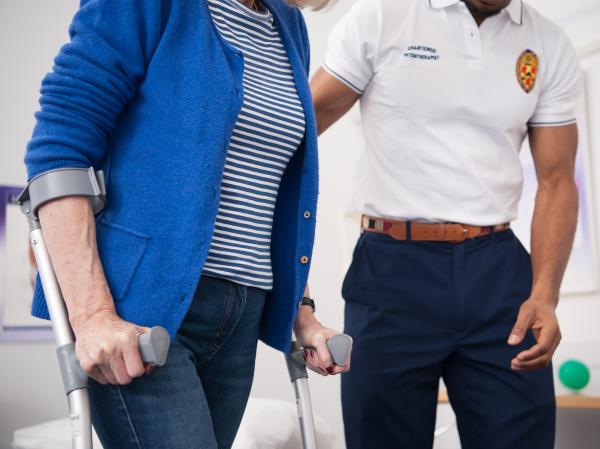National Institute for Health and Care Excellence (NICE) has updated guidance recommending increased rehabilitation for those who have had a stroke.
It reinforces the life-changing impact of rehabilitation, which includes physiotherapy, in a patient’s journey.
The CSP, which works in alliance with 60 health and care organisations to campaign for a right to rehab, has welcomed the development as it serves to again spotlight how access to needs-led, person-centred rehab can dramatically and fundamentally improve someone’s quality of life.
CSP assistant director Sara Hazzard said:
We know that lives are devastated when people don't get the rehab needed. The guidance from NICE is a positive step to ensure everyone's right to rehab is realised.
People who have had a stroke and who have continuing impairment or limitations on their activities should be offered additional rehabilitation to help them recover, NICE said in updated guidance.
The recommendations, which are in line with the recent National Clinical Guideline for Stroke, are made in NICE’s updated guideline on stroke rehabilitation in adults.
Needs-based rehabilitation

The guideline says that people who have had a stroke should be offered needs-based rehabilitation for at least three hours a day on at least five days of the week covering a range of multidisciplinary therapy including physiotherapy, occupational therapy and speech and language therapy.
This represents an increase in rehabilitation compared with NICE’s original guideline published in 2013. This recommended offering initially at least 45 minutes of each relevant stroke rehabilitation therapy for a minimum of five days per week (although this could be increased depending on personal preference and ability).
The evidence reviewed by the independent committee that developed the guideline showed more intensive rehabilitation improved quality of life and activities of daily living. They also heard from people recovering from stroke, and their families and carers, who felt strongly that more intensive rehabilitation would be useful in helping them to recover faster.
Find Out More
Number of subscribers: 1